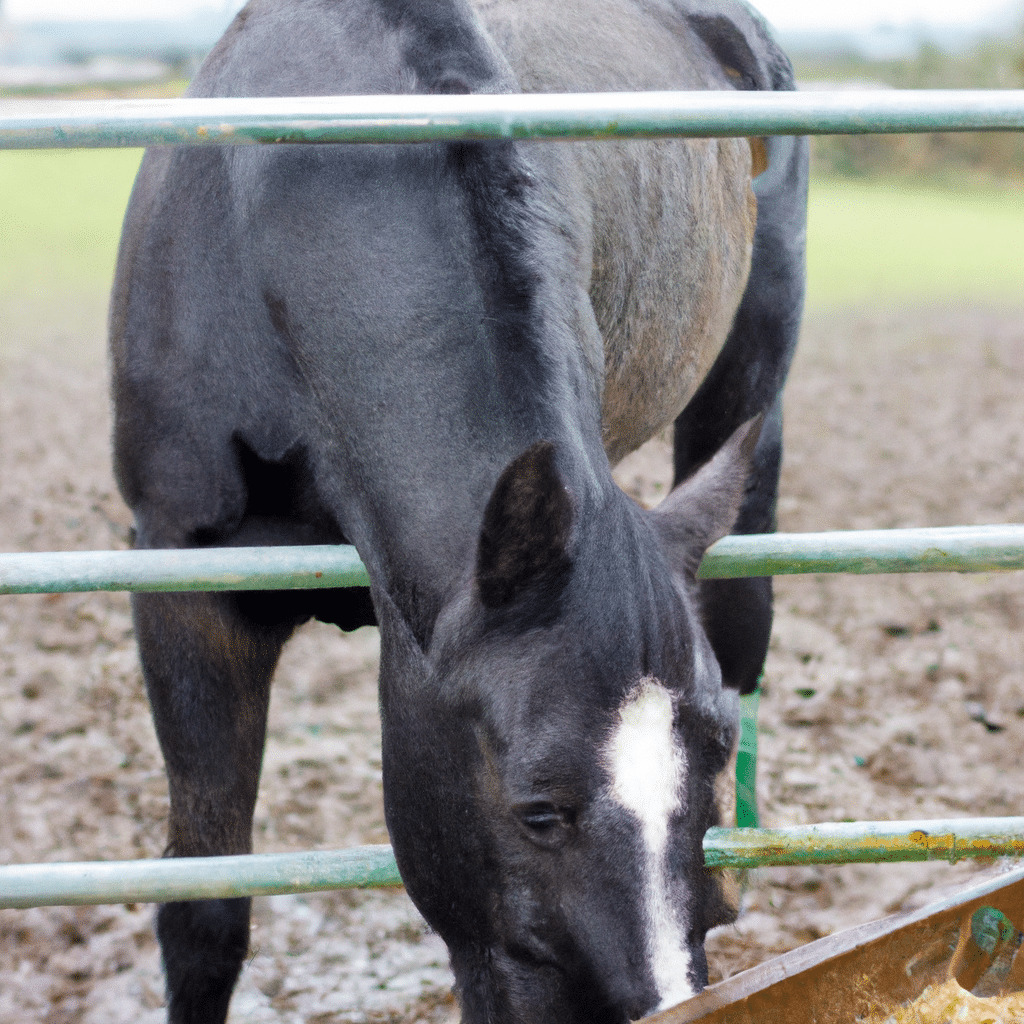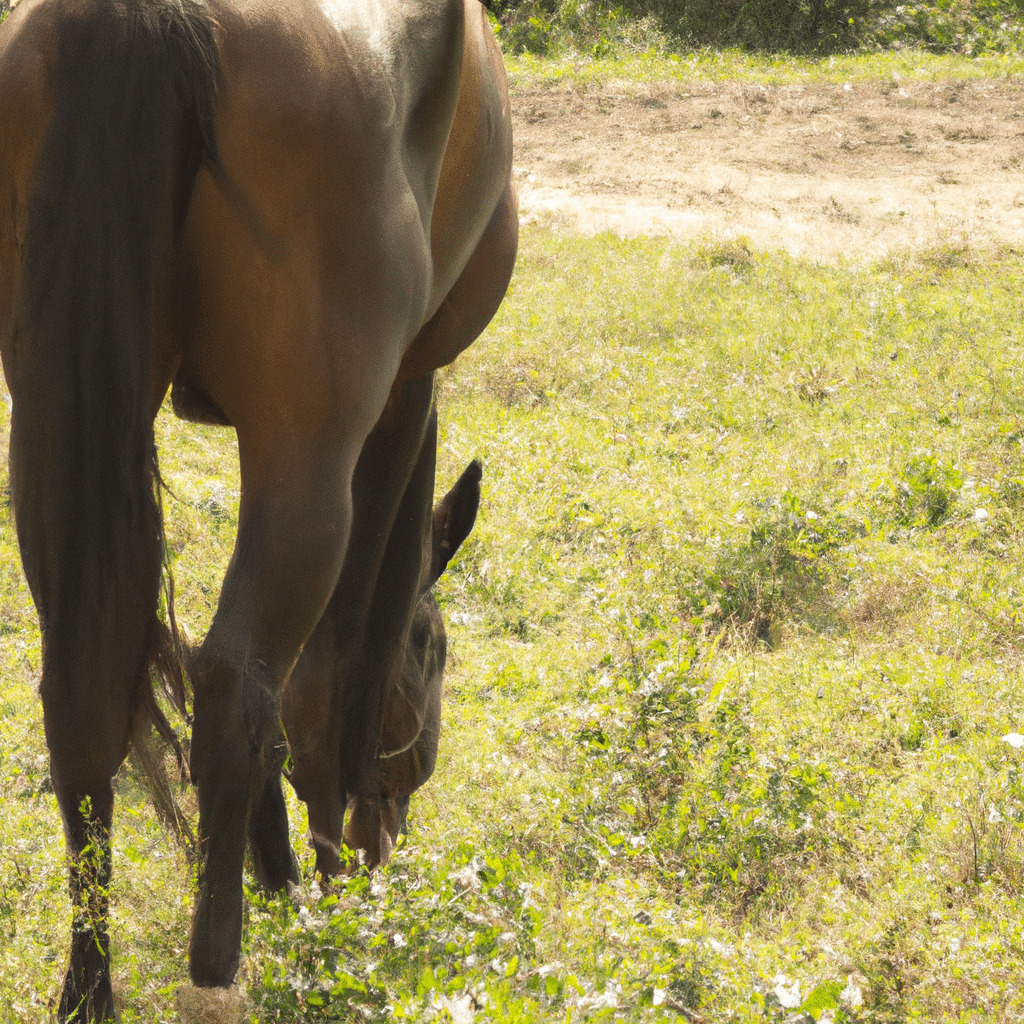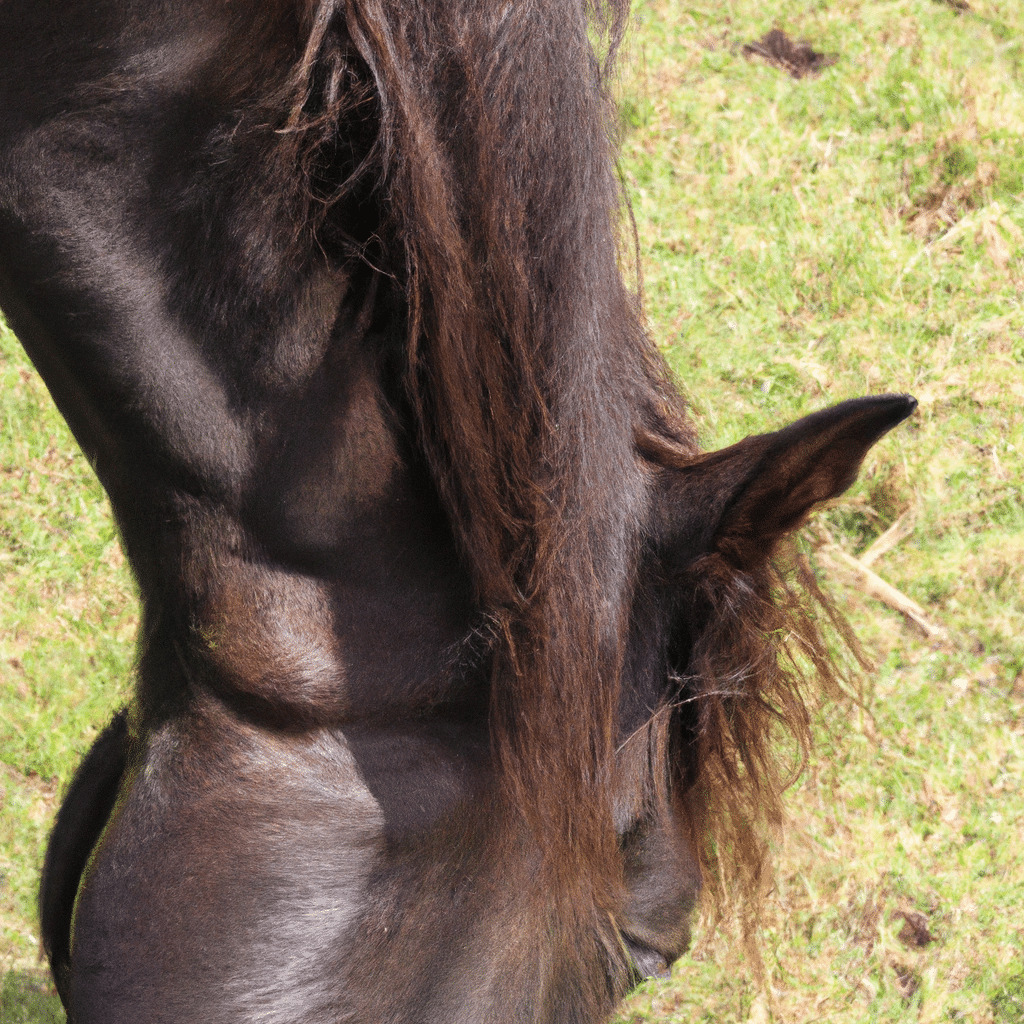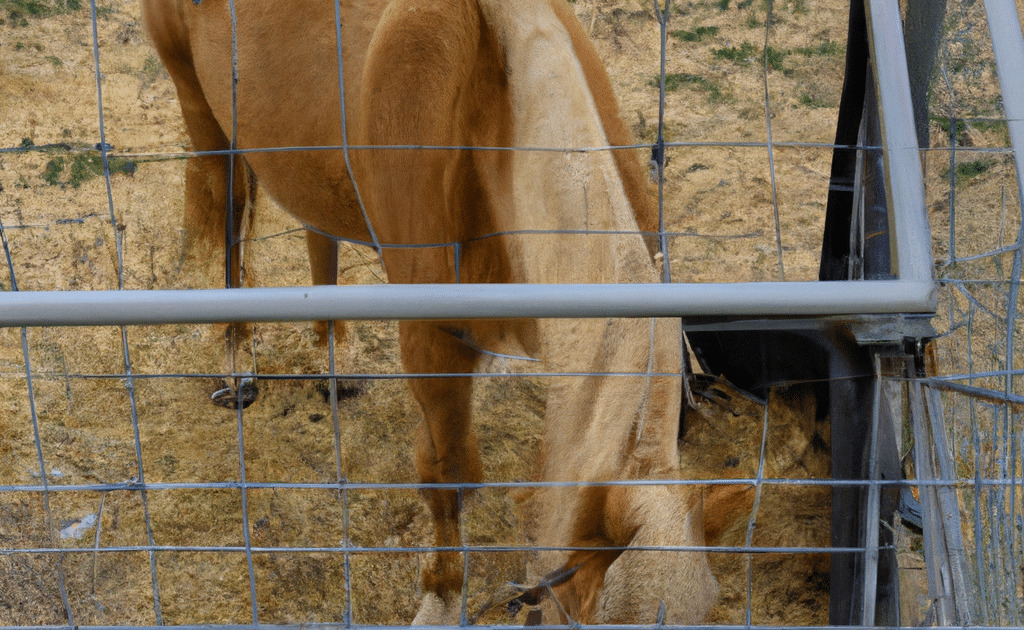Introduction:
Horses are majestic creatures that have been a part of human history for centuries. They have served as loyal companions, reliable workhorses, and even competitive athletes. However, like humans, horses can also face weight management problems that can impact their overall health and well-being.
Maintaining a healthy weight in horses is crucial for their performance, longevity, and overall quality of life. Whether you have a horse that is underweight or overweight, it is important to implement effective feeding strategies to help them overcome these struggles.
In this article, we will explore essential feeding strategies for horses with weight management problems. We will delve into the importance of a balanced diet, portion control, and the role of exercise in maintaining a healthy weight. So, if you have a horse that is struggling with weight management, keep reading to discover the solutions that can help them thrive.
The Importance of a Balanced Diet
A balanced diet is the foundation of good health for horses, especially those with weight management problems. Providing your horse with the right nutrients in the right proportions is essential for maintaining a healthy weight and overall well-being.
One of the key components of a balanced diet for horses is high-quality forage. Hay or pasture should make up the majority of their diet, as it provides essential fiber and nutrients. However, it is important to assess the nutritional value of the forage and adjust the quantity accordingly. Horses that are overweight may require restricted access to forage, while underweight horses may need more.
In addition to forage, horses also need a source of protein, vitamins, and minerals. This can be achieved through the inclusion of concentrated feeds such as grains or commercial horse feeds. However, it is important to choose feeds that are specifically formulated for horses with weight management problems. These feeds are designed to provide the necessary nutrients while keeping calorie intake in check.
Portion Control: Finding the Right Balance
Portion control plays a crucial role in managing the weight of horses. Just like humans, horses can easily consume more calories than they burn, leading to weight gain. On the other hand, inadequate calorie intake can result in weight loss and malnutrition.
To find the right balance, it is important to consider the individual needs of your horse. Factors such as age, breed, activity level, and metabolism should be taken into account. Consulting with a veterinarian or equine nutritionist can help determine the appropriate portion sizes for your horse.
Dividing the daily ration into multiple small meals can also be beneficial for horses with weight management problems. This helps prevent overeating and keeps their metabolism active throughout the day. Additionally, using slow feeders or hay nets can help regulate forage consumption and prevent rapid intake.
The Role of Exercise
Exercise is not only important for maintaining overall fitness in horses but also plays a significant role in weight management. Regular exercise helps burn calories, build muscle, and improve metabolism.
When it comes to horses with weight management problems, exercise should be approached gradually and tailored to their individual needs. Starting with low-impact activities such as walking or trotting can help improve cardiovascular health and gradually increase stamina.
Incorporating a variety of exercises into your horse’s routine can help target different muscle groups and prevent boredom. This can include activities such as lunging, trail riding, or even engaging in light groundwork exercises.
It is important to note that exercise alone may not be sufficient for weight loss in overweight horses. A combination of exercise and dietary adjustments is often necessary to achieve the desired results. Regular monitoring of weight and body condition is crucial to assess the effectiveness of the feeding and exercise program.

Supplements for Weight Management
In addition to a balanced diet and portion control, certain supplements can be beneficial for horses with weight management problems. These supplements can help support metabolism, digestion, and overall health.
One commonly used supplement is omega-3 fatty acids. These essential fatty acids have been shown to have anti-inflammatory properties and can support weight management in horses. They can be found in sources such as flaxseed or fish oil.
Another supplement that can aid in weight management is chromium. Chromium helps regulate insulin levels and can improve glucose metabolism. This can be particularly beneficial for horses that are insulin resistant or prone to metabolic disorders.
It is important to note that supplements should not be used as a substitute for a balanced diet. They should be used as a complementary addition to the horse’s feeding program, under the guidance of a veterinarian or equine nutritionist.
Monitoring and Adjusting the Feeding Program
Regular monitoring and adjustment of the feeding program is essential for horses with weight management problems. This allows you to assess the effectiveness of the strategies implemented and make necessary changes.
One important aspect of monitoring is keeping track of the horse’s weight and body condition. This can be done through regular weigh-ins and body condition scoring. By monitoring changes in weight and body condition, you can determine if the feeding program needs to be adjusted.
It is also important to observe the horse’s behavior and overall well-being. Signs of excessive weight loss or gain, changes in appetite, or any other abnormal behavior should be addressed promptly.
Based on the monitoring results, adjustments can be made to the portion sizes, types of feed, or the inclusion of supplements. Consulting with a veterinarian or equine nutritionist can provide valuable guidance in making these adjustments.
The Importance of Consistency
Consistency is key when it comes to implementing feeding strategies for horses with weight management problems. Horses thrive on routine and predictable feeding schedules.
It is important to establish a consistent feeding routine and stick to it. This includes feeding at the same times each day and providing the same types and quantities of feed.
Sudden changes in the feeding program can disrupt the horse’s digestion and metabolism, leading to weight fluctuations or other health issues. If adjustments need to be made, they should be done gradually over a period of time.
Consistency also extends to the handling and management of the horse. Stressful or inconsistent handling can impact the horse’s appetite and overall well-being. Providing a calm and stable environment is essential for the success of the feeding program.
Alternative Feeding Strategies
While a balanced diet, portion control, exercise, and monitoring are the foundation of managing weight in horses, there are also alternative feeding strategies that can be explored.
One such strategy is the use of grazing muzzles. Grazing muzzles limit the amount of forage a horse can consume while still allowing them access to pasture. This can be particularly useful for horses that are prone to overeating or have access to lush pastures.
Another alternative feeding strategy is the use of slow feeders. Slow feeders are designed to regulate the rate at which horses consume their forage. They can help prevent rapid intake and encourage horses to eat slowly, mimicking their natural grazing behavior.
Additionally, soaking hay can be beneficial for horses with weight management problems. Soaking hay reduces its calorie content and sugar content, making it a suitable option for horses that need to restrict their calorie intake.
It is important to note that when implementing alternative feeding strategies, careful monitoring is still necessary to ensure the horse’s nutritional needs are being met.
Seeking Professional Guidance
Managing weight in horses can be a complex process, and it is always advisable to seek professional guidance. Consulting with a veterinarian or equine nutritionist can provide valuable insights and personalized recommendations for your horse’s specific needs.
These professionals can assess your horse’s current condition, evaluate their dietary requirements, and help create a customized feeding plan. They can also guide you in implementing the appropriate feeding strategies, monitoring the horse’s progress, and making necessary adjustments.
Furthermore, they can provide guidance on any underlying health issues that may be contributing to the weight management problems. Conditions such as metabolic disorders or hormonal imbalances can impact a horse’s ability to maintain a healthy weight, and addressing these issues is crucial for long-term success.
Remember, every horse is unique, and what works for one may not work for another. Seeking professional guidance ensures that you are providing the best possible care for your horse and increasing the likelihood of overcoming weight management struggles.
In conclusion, managing weight in horses requires a comprehensive approach that includes a balanced diet, portion control, exercise, monitoring, and potentially alternative feeding strategies. By implementing these strategies and seeking professional guidance, you can help your horse overcome weight management problems and improve their overall health and well-being.
Remember to always consider the individual needs of your horse and make adjustments as necessary. Regular monitoring and assessment are key to ensuring the effectiveness of the feeding program.
So, if you have a horse struggling with weight management, don’t lose hope. With the right strategies and support, you can help them overcome the struggle and thrive.
In conclusion, overcoming weight management problems in horses requires a multifaceted approach that encompasses various feeding strategies, exercise, monitoring, and seeking professional guidance. By providing a balanced diet, practicing portion control, incorporating regular exercise, and monitoring the horse’s weight and body condition, you can help your horse achieve and maintain a healthy weight.
It is important to remember that every horse is unique, and what works for one may not work for another. Therefore, it is crucial to tailor the feeding program to the individual needs of your horse. Consulting with a veterinarian or equine nutritionist can provide valuable insights and personalized recommendations for your horse’s specific requirements.
Additionally, alternative feeding strategies such as grazing muzzles, slow feeders, and soaked hay can be beneficial in managing weight in horses. These strategies can help regulate forage intake, control the rate of consumption, and reduce calorie and sugar content in the diet.
Consistency is key when implementing feeding strategies for horses with weight management problems. Establishing a consistent feeding routine, providing a calm and stable environment, and avoiding sudden changes in the feeding program are essential for the success of the weight management plan.
The journey to overcoming weight management struggles in horses may not always be easy, but with patience, dedication, and the right strategies, it is possible to help your horse achieve a healthy weight and improve their overall well-being.
So, if you have a horse that is facing weight management challenges, don’t lose hope. Take the necessary steps to implement the essential feeding strategies discussed in this article, seek professional guidance, and monitor your horse’s progress. With your commitment and the support of experts, you can help your horse overcome the struggle and set them on the path to a healthier and happier life.
Are you ready to take the reins and help your horse overcome weight management problems?

If you’re interested in further enhancing your horsemanship skills, mastering the art of Western riding is a great next step. Western riding is a popular discipline that focuses on balance, control, and communication between horse and rider. By learning Western riding techniques, you can improve your overall riding ability and develop a deeper connection with your horse. Check out this guide for valuable tips and insights on mastering Western riding.

Stress can have a significant impact on a horse’s overall health and well-being. It can affect their behavior, immune system, and even contribute to weight management problems. Understanding and managing stress in horses is crucial for their overall welfare. If you want to delve deeper into this topic, explore the connection between stress and equine health in this informative article. Learn how to identify signs of stress, implement stress-reducing techniques, and create a harmonious environment for your horse.

Obesity in horses is not just a cosmetic concern; it can have serious health implications, including the development of laminitis. Laminitis is a painful and potentially debilitating condition that affects the hooves of horses. Understanding the connection between obesity and laminitis is crucial for preventing and managing this silent threat. Dive into this resource to learn more about the link between obesity and laminitis, as well as effective strategies for weight management and hoof health.

